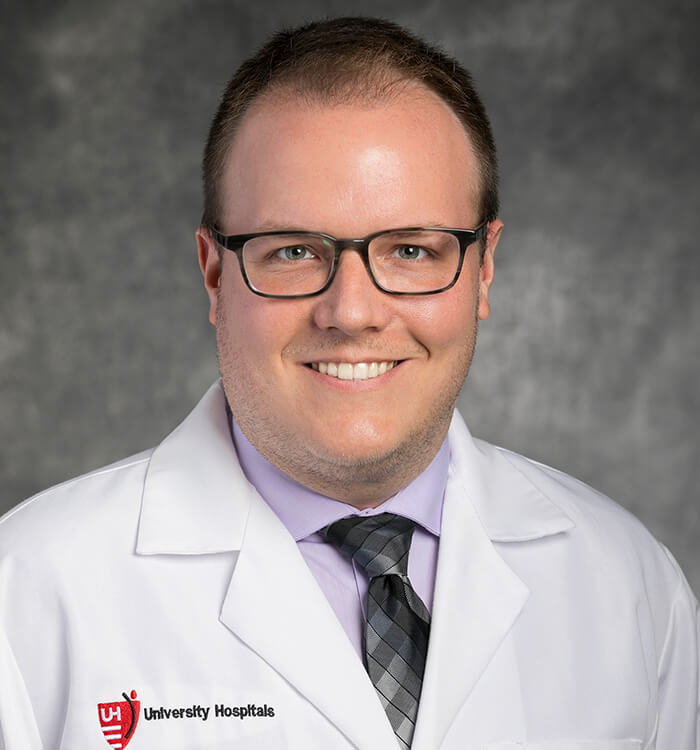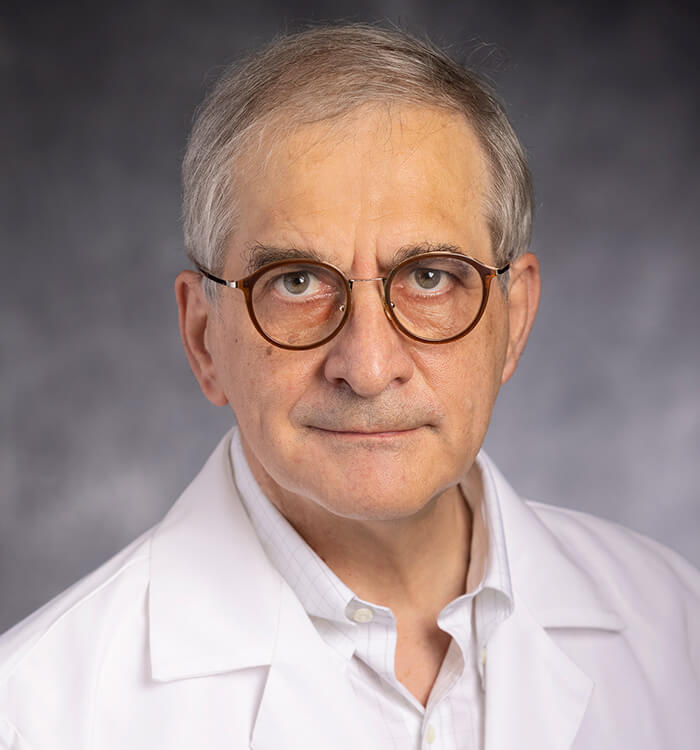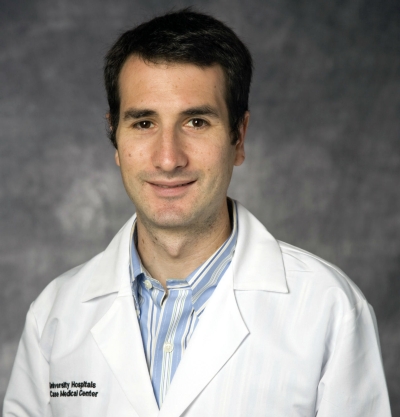UH Seidman Researchers Slash Time Needed to Produce CAR T-Cells
October 18, 2022
Quicker process will get needed therapy to cancer patients who don’t have time to wait
Innovations in Cancer | Fall 2022
Researchers at Univeristy Hospitals Seidman Cancer Center and a biotech start-up company have developed a streamlined way to manufacture CAR T-cells for immunotherapy treatment in just 24 hours – an improvement over the team’s previous benchmark of eight days and commercial suppliers that typically take three weeks. The team is one of the first in the country to test this manufacturing approach. This revolutionary new development promises to speed up the delivery of CAR T therapy to those who need it most – a vital concern for hematologists and oncologists and their patients. What’s more, researchers here say the rapidly manufactured CAR T-cells appear to be more potent than cells manufactured in the traditional way.
 James Martin, MD
James Martin, MD Koen van Besien, MD, PhD
Koen van Besien, MD, PhDWhy speed matters: Some evidence suggests that 25 percent of cancer patients slated to receive CAR T therapy have progression of their disease before they can be treated, with many waiting well over three weeks for delivery of a commercial CAR T product.
“Some patients just don't have a lot of time, so streamlining this manufacturing process and potentially even making a more effective product is very important and will ultimately benefit a lot of people,” adds UH Seidman Cancer Center oncologist James Martin, MD, who is principal investigator of an upcoming Phase 1 clinical trial testing the new CAR T manufacturing technology.
“This work by UH scientists is of fundamental importance for the field of CAR T-cell therapy and for development of such products in other diseases such as acute leukemia, or – in the future – some solid tumors,” says Koen van Besien, MD, PhD, UH Seidman Cancer Center Hematology Chief, Director of Wesley Center for Immunotherapy, and the Don C. Dangler Chair in Stem Cell Research.
What is CAR T Therapy?
CAR T therapy is a mainstay of modern immunotherapy for certain cancers. The process allows doctors to identify markers on the surface of cancer cells, take a person’s own normal T-cells and reverse-engineer them to specifically seek out cells with those suspicious markers, thus destroying the cancer. These genetically engineered cells are known as chimeric antigen receptor, or CAR T-cells.
The new manufacturing process developed here extends the benefits of this groundbreaking therapy even further, researchers say.
 David Wald, MD, PhD
David Wald, MD, PhD“The more rapid CAR T product appears to be more potent and more effective,” says David Wald, MD, PhD, Associate Director for Basic Research at the newly expanded Wesley Center for Immunotherapy at UH Seidman Cancer Center. “We need to do clinical studies to know for sure, but at least in animal studies, the rapid CAR T product is more effective than cells manufactured using traditional processes. There seem to be significant advantages, not only to be able to produce the product more efficiently and at a markedly lower cost, but we hope it will also be more effective in patients.”
Clinical Trial Soon To Get Under Way
In November, UH Seidman Cancer Center is launching a Phase 1 clinical trial of the rapid manufacture CAR T-cell product in conjunction with the Case Comprehensive Cancer Center at Case Western Reserve University and Cleveland Clinic. The trial will test the safety of what are called UF-KURE19 cells in adult patients with relapsed or refractory non-Hodgkin lymphoma. However, if the trial is successful, the research team hopes to expand testing of rapidly manufactured CAR-T products to patients with other types of cancer.
“People are working on rapid conditioning regimens as well, so hopefully in the future the delivery of the product to patients can be further improved, but just by reducing it to four or five days should lead to clear and immediate benefits for cancer patients, Dr. Wald says.
Making the Technology Accessible to Others
In developing this new technology, Dr. Wald says the research team is making a concerted effort to make the manufacturing process simple and inexpensive to make it accessible to hospitals without advanced equipment worldwide.
“We're trying to do this, eventually, as a therapy that can be manufactured outside of a specialized GMP lab so that it could be more amenable to most major hospitals around the world, especially in places and other countries where they don't have a lot of this sophisticated expertise and facilities currently needed to manufacture CAR T-cells themselves. The goal is to create a very simple, one-day process that doesn't need a lot of complex equipment or expertise.”
Impact for Patients
Dr. Martin and Dr. van Besien say they’re optimistic about the difference the new CAR T manufacturing process can make for their patients.
“Especially for patients with multiple relapsed aggressive disease, it is sometimes hard to find appropriate therapies that will keep their disease at bay,” Dr. Martin says. “While waiting for the CAR T product, the more and more lines of treatment somebody goes, the less chemo-sensitive it really it is. To get somebody into the hospital and then getting them a cell product within days will make a big and meaningful difference with their disease control.”
“This will help the sickest among our lymphoma patients, who often don’t have the time to wait for the lengthy manufacturing process in order to receive lifesaving CAR T therapy,” adds Dr. van Besien.
For more information, please visit UHhospitals.org/immunotherapy.
Contributing Experts:
James Martin, MD
Associate Program Director, Hematology and Oncology
UH Seidman Cancer Center
Assistant Professor
Case Western Reserve University School of Medicine
Koen van Besien, MD, PhD
Chief, Hematology
Director, Wesley Center for Immunotherapy
Don C. Dangler Chair in Stem Cell Research
UH Seidman Cancer Center
David Wald, MD, PhD
Associate Director for Basic Research at the Wesley Center for Immunotherapy
UH Seidman Cancer Center
Associate Professor of Pathology
Case Western Reserve University School of Medicine


